Biodiversity and peace: Colombia’s role in shaping conservation efforts
As Colombia prepares to host COP16, the 16th Conference of the Parties to the Convention on Biological Diversity, the country stands poised to shape global biodiversity policy. The central theme, Peace with Nature, reflects a vision in which conservation and sustainable development are intertwined with Colombia’s broader social and political goals: to reduce armed conflict, drug trafficking, and common violence.
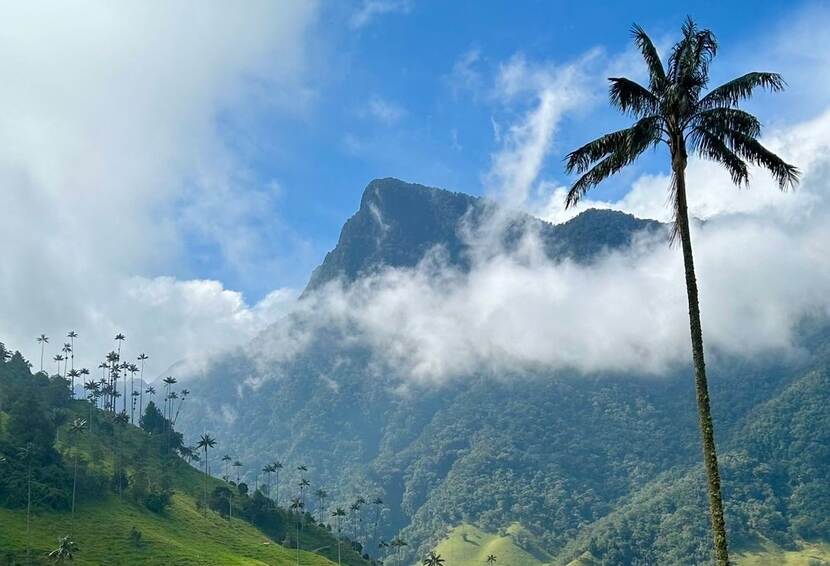
Colombia is globally the most biodiverse country per square kilometer. With its diverse ecosystems such as rainforests, deserts, mangroves and two seas, it hosts around 10% of the world's biodiversity. In December 2023, Colombia counted 79,831 species, with 75,766 on land and 7,650 in the sea.
Recognizing its critical role in protecting these natural treasures, the Colombian Government has taken significant steps to mitigate biodiversity loss, most notably by creating an extensive network of protected areas. The country has 1,552 protected areas, covering nearly 24% of the country.
All in all, 31% of the land is under some form of protection, and this percentage will increase even more since the government has committed, within the framework of the Aichi targets, to take the required actions to increase considerably the marine and terrestrial area of the national territory to be protected under conservation figures. This will be done, as it has been doing, through international cooperation, guaranteeing the conservation of natural resources as public natural heritage. In addition, Colombia protects 37% of its marine areas.
Environmental policies are targeting a 51% reduction in CO2-emissions by 2030, and a carbon-neutral country by 2050. Nevertheless, challenges remain, as Colombia’s vast forests host many illegal activities as described later in the article, practiced by illegal economic actors dedicated to extensive cattle ranching and land grabbing.
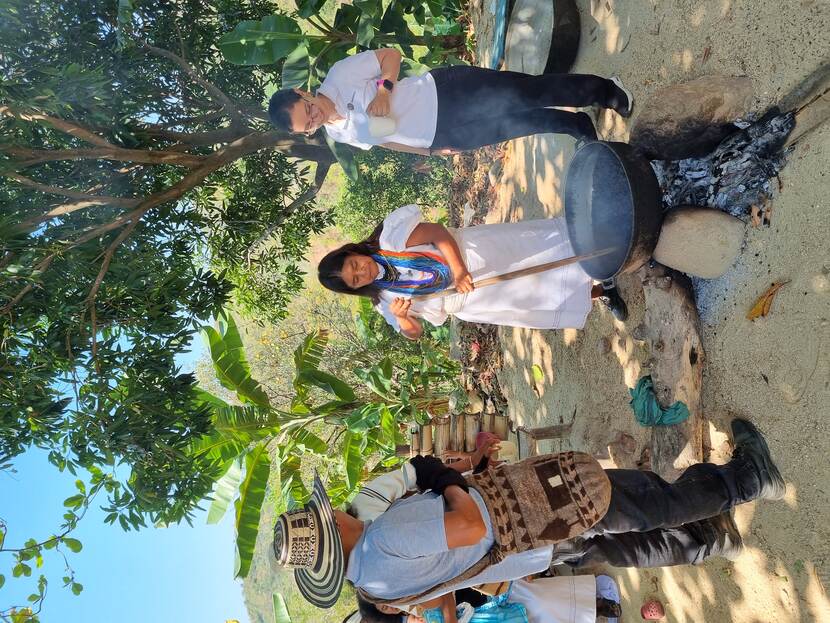
COP16: Colombia’s vision for a sustainable future
This autumn, Colombia will host and preside over the most important global summit on biodiversity: the 16th Conference of the Parties of the Convention on Biological Diversity (COP16), from 20 October – 1 November 2024. The stakes are high.
COP16 is the biggest ever international event in the country. President Gustavo Petro has chosen Santiago de Cali, the capital of the very biodiverse Pacific region, to host the meeting. In line with its National Biodiversity Strategy, whose updated version Colombia will present during COP16, the country will focus its presidency on four main priorities:
-
Leading the Coalition for Peace with Nature to restore ecosystems and tackle the climate crisis.
-
Integrating climate change and biodiversity efforts to address the environmental crisis comprehensively.
-
Ensuring fair compensation for biodiversity-rich countries by sharing the benefits of genetic resources, also in digital sequencing.
-
Securing funding agreements for biodiversity protection through 2030.
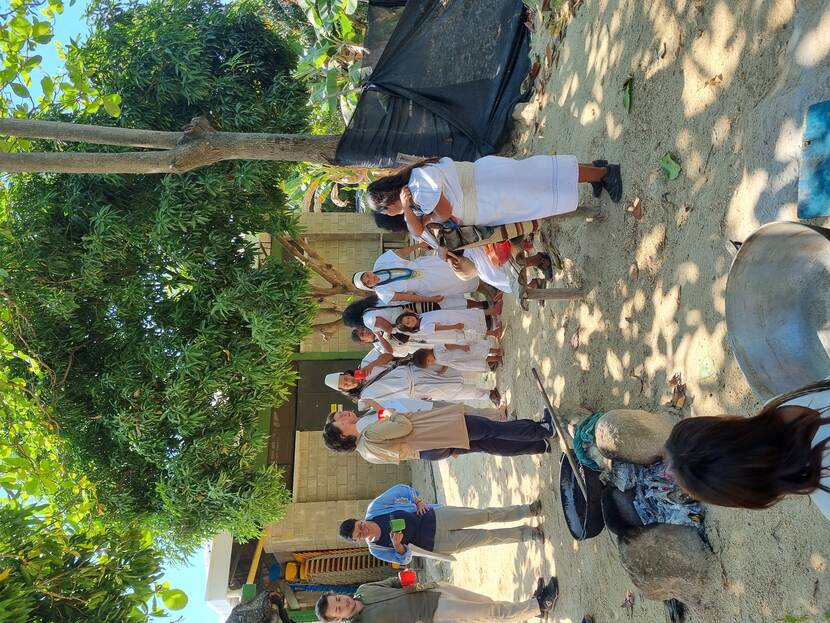
Peace with Nature takes center stage
The theme chosen for COP 16-CBD is: Peace with Nature, highlighting the important link between biodiversity and peace, both nationally and globally. In a country recognized for its extraordinary biodiversity and conservation efforts, nature is under pressure due to remaining internal conflicts and unsustainable practices.
The theme ‘Peace with Nature’ and the location of COP16 are intentionally chosen, and very significant for Colombia. The Valle del Cauca department, of which Cali is the capital, represents only 2% of Colombia’s territory, yet it is one of the most biodiverse regions on the planet. For decades, it has also been severely affected by armed conflict, drug trafficking, and common violence, which has made it difficult for both inhabitants and tourists to enjoy its biodiversity fully. This COP serves as a call to action and cooperation between nations to make peace with nature in every sense, emphasizing that peace in its multiple forms is very much connected to biodiversity and the climate crisis – both as a condition for biodiversity to thrive, as well as a consequence.
‘In a country recognized for its extraordinary biodiversity and conservation efforts, nature is under pressure due to remaining internal conflicts and unsustainable practices’
Colombia’s Amazon facing critical challenges
Colombia’s Amazon region covers about 42% of the country's land and holds 6% of the total Amazon area. According to World Wide Fund for Nature (WWF) figures, biodiversity in the Colombian Amazon is exceptionally rich and diverse, including 674 bird species, 195 reptiles, 212 mammals, and over 6,300 plant types. However, deforestation, illegal mining, and drug trafficking pose severe threats to this ecosystem. These activities not only harm biodiversity but also accelerate climate change. This presents the Colombian Government with a significant challenge in balancing economic development and the urgent need to conserve one of the planet's most vital ecosystems.
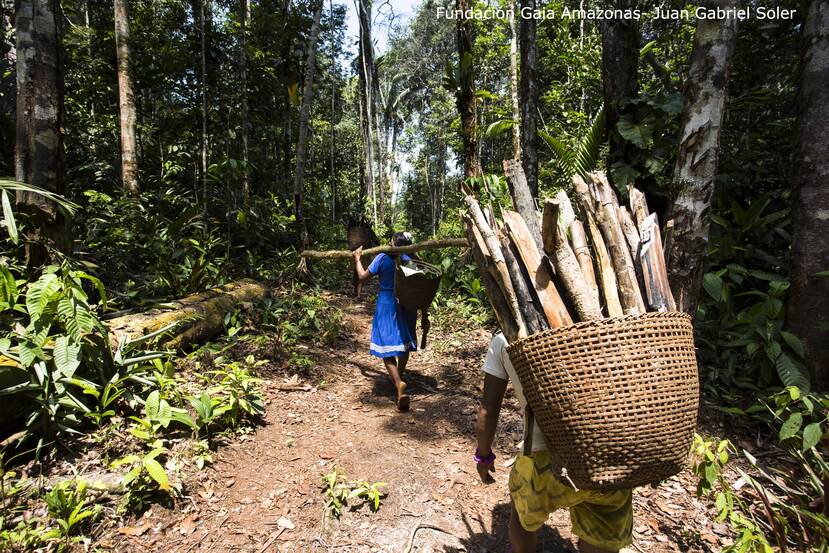
Supporting forest ecosystems and indigenous communities
The Netherlands is actively promoting biodiversity conservation in Colombia. For example, it is one of the countries that founded the Amazon Bioeconomy and Forests Management Multi-Donor Trust Fund (AMDTF), which assists Amazon countries in reducing pressure on forest ecosystems by improving environmental governance and fostering sustainable economic alternatives.
Dutch organizations also support indigenous communities in Colombia. These communities play a key role in protecting biodiversity with their traditional knowledge of ecosystems and deep connection to Mother Nature. Managing their natural reserves in a sustainable way, they prevent over-exploitation of resources. Their spiritual and cultural connection to the earth drives them to protect it, as it is a sacred entity that must be respected and preserved for future generations.
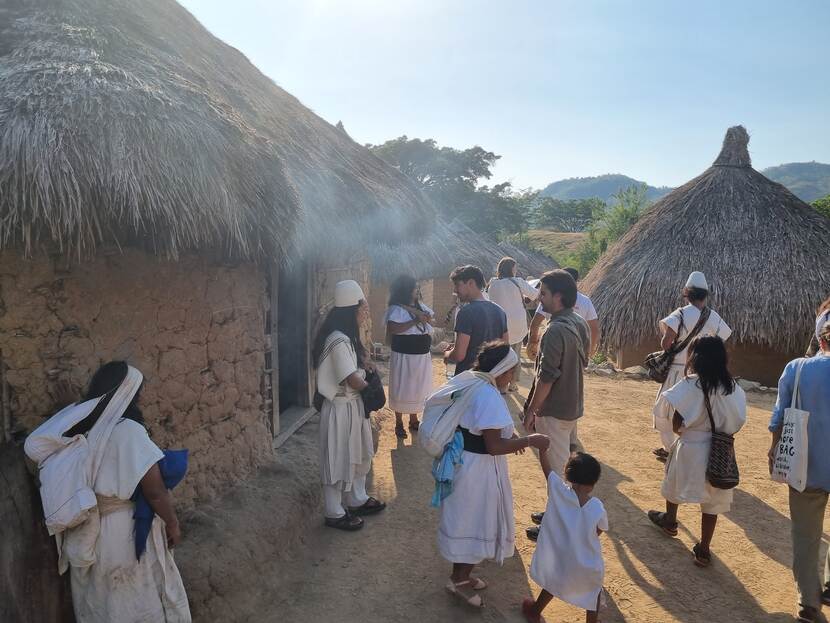
LAN team: knowledge exchange and coordinating networks
The Netherlands Agricultural Network (LAN) team at the Dutch Embassy in Bogotá collaborates with sector federations, such as the National Federation of Oil Palm Growers and the National Federation of Coffee Growers, local governments, international organizations and civil society, to support agri-food systems to become more and more sustainable. Especially in sectors that are important for trade between Colombia and the Netherlands, such as coffee, avocado and palm oil. This has become particularly relevant in view of the implementation of the EU zero-deforestation legislation.
Various organizations such as Tropenbos, Kadaster and Conexión ICCO execute programs regarding biodiversity and land administration – key for the Colombian post-conflict context - funded by the Netherlands. The Dutch Embassy contributes with knowledge exchange, coordinating networks, and hosting or supporting activities within the framework of the program Land at Scale to position those organizations and their important work with stakeholders.
The LAN team Colombia also coordinates efforts to develop activities on biodiversity in a regional manner together with LAN colleagues stationed at the Dutch embassies in Brazil and Argentina. For instance, the colleagues in Brazil recently worked with external consultants on a study to find synergies between the three countries on biodiversity issues, and it served as a preparatory study for the work of the new Nature and Biodiversity Counselor for Latin America, Emiel Mulder.
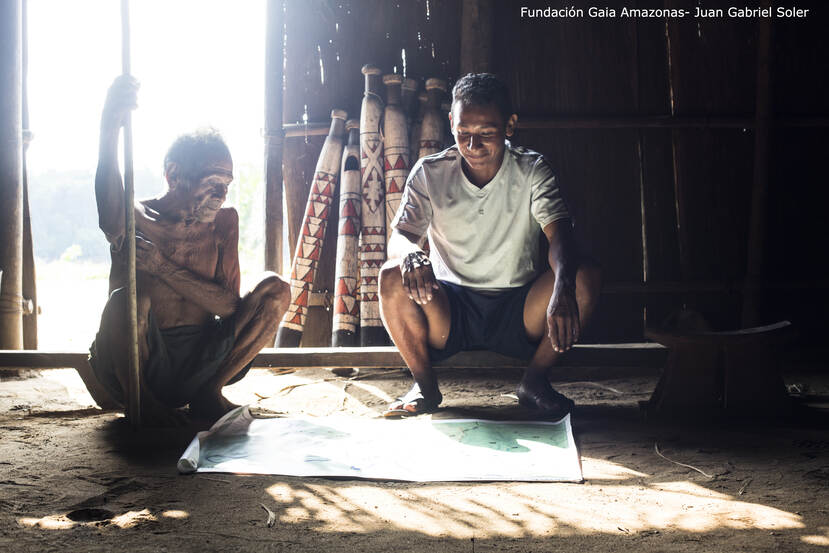
A message for COP16
The LAN team in Bogotá collaborates with several civil society organizations present in Colombia, which have Dutch roots and/or programs financed by the Netherlands. Many of them work on biodiversity in Colombia, contributing to its conservation and sustainable use. The LAN team asked some of those partners to provide a message for COP16. You will find the messages below, including links to their programs if you would like to know more.
WWF
WWF Colombia says that they see COP16 as a historical opportunity for Colombia to continue showing its leadership in the global biodiversity agenda. It is an incredibly important platform to consolidate regional and global alliances in view of protecting biodiversity and the fight against climate change. The event not only provides Colombia with the opportunity to show its national efforts but is also key to promote more cooperation in Latin America and the Caribbean, which is much needed for our shared environmental challenges.’ WWF
The Green Livelihood Alliance
The Green Livelihood Alliance (GLA, 2021-2025) is a collaboration between Gaia Amazonas, IUCN NL, Milieudefensie, Tropenbos International, Non-Timber Forest Products – Exchange Programme and The Sustainable Development Institute. This program, financed by the Netherlands, is active in 11 countries. It aims to ensure that tropical forests and forest landscapes are sustainably and inclusively governed to mitigate and adapt to climate change, fulfil human rights and safeguard local livelihoods.
In Colombia, Gaia Amazonas, Tropenbos and IUCN work together. Recently, they organized a pre-COP meeting in Bogotá for indigenous women from all corners of Colombia. Agricultural Counselor Leontine Crisson of the LAN team in Bogotá was invited to give opening words and was impressed by the diversity of women and their important role in the protection and sustainable use of biodiversity. The women offered their ideas and concerns, to be included in the COP16 discussion.
Gaia Amazonas shared their thoughts for the COP16: ‘To protect the Amazon is to protect life in its multiple forms, and this is how indigenous peoples understand biodiversity. This can be achieved, according to the North Amazon Alliance that Gaia Amazonas coordinates, by guaranteeing the connection between social, ecosystemic and cultural aspects in this crucial living system. Hopefully, after COP16, the world will understand the importance of the role of indigenous communities in the preservation of biodiversity.’ Green Livelihoods Alliance.
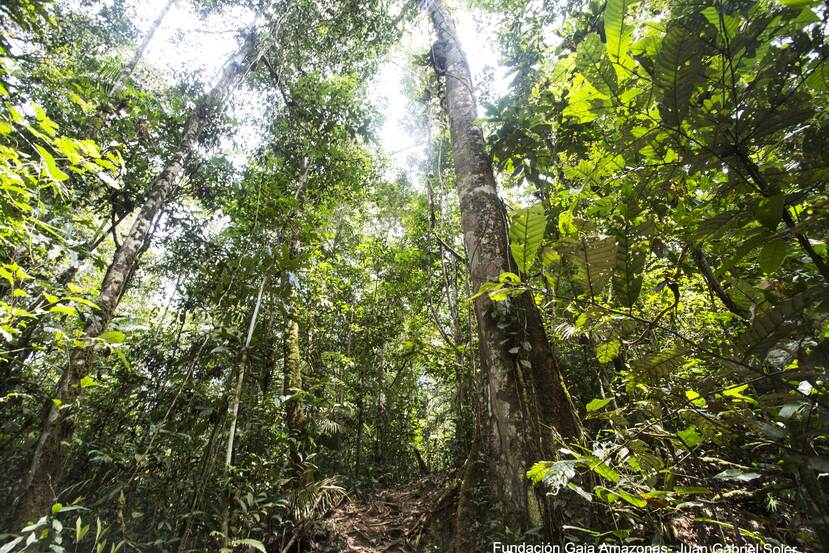
Tropenbos Colombia
Tropenbos Colombia (Making knowledge work for forests and people) shared: ‘COP16 is a great opportunity to get to know Colombia in its biodiversity, public policies, and that it will be the ideal space for dialogue with local communities, public entities, academics and NGOs to construct the road towards the achievement of the Kunming-Montreal biodiversity goals.’ Tropenbos Colombia.
IUCN NL
IUCN NL works in different areas in Colombia, including forest justice and land acquisition for protecting areas, and shared the following: ‘As a host country for COP16, Colombia can present its approach against deforestation. In doing so, the country makes an important contribution to global efforts for sustainable land-use practices and the fight against forest crime. Colombia chose ‘Peace with Nature’ as its overarching theme. This calls for improving the relationship between humans and nature and searching for ways to change the current model of extraction, overexploitation and pollution of nature.’ Amazon rights in focus: peoples and forest protection – IUCN NL

More information
Would you like to know more about biodiversity conservation and/or the COP16 in Colombia? You can visit the country page of Colombia at the website Agroberichtenbuitenland.nl of the Dutch Ministry of Agriculture, Fisheries, Food Security and Nature. You can also send an email to the LAN team in Bogotá: bog-lvvn@minbuza.nl.
This article is part of the 13th edition of the e-magazine Agrospecial, titled "Peace with Nature: Global Biodiversity Commitment" (originally published on October 9, 2024).
In this edition, the Netherlands Agricultural Network (LAN) explores the crucial role of biodiversity in agriculture and nature in the context of the COP16 of the Convention on Biological Diversity (CBD) in Colombia. Agricultural Counselors from over 18 countries share their involvement in initiatives that foster the protection and sustainable use of biodiversity, highlighting the complex interdependence between biodiversity, water and soil management. In these efforts, cooperation, innovation and knowledge exchange are key, and LAN plays a crucial role in mainstreaming this global commitment.